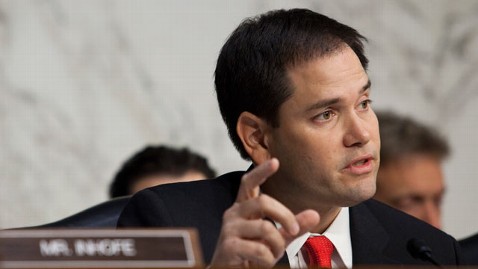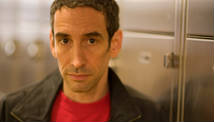Five Americans who were at an Algerian natural gas facility when it was raided by al Qaeda linked terrorists are now safe and believed to have left the country, according to U.S. officials. At least three Americans, however, were being held hostage by the militants when the Algerian military mounted an rescue operation earlier today that reportedly resulted in casualties.
Reports that as many as 35 hostages and 15 Islamist militants at a BP joint venture facility in In Amenas have been killed during a helicopter raid have not been confirmed, though Algeria's information minister has confirmed that there were casualties. According to an unconfirmed report by an African news outlet, the militants say seven hostages survived the attack, including two Americans, one Briton, three Belgians and a Japanese national.
British Prime Minister David Cameron said that Algerian forces had attacked the compound, and that the situation "was ongoing."
"We face a very bad situation at this GP gas compound in Algeria," said Cameron. "A number of British citizens have been taken hostage. Already we know of one who has died. ... I think we should be prepared for the possibility for further bad news, very difficult news in this extremely difficult situation."
An unarmed U.S. Predator drone is now above In Amenas and is conducting surveillance. A U.S. official says the U.S. was not informed in advance by the Algerians of the raid they launched today.
In a statement, BP, a joint owner of the facility, said it had been told by both the British and Algerian governments that "the Algerian Army is attempting to take control of the In Amenas site."
"Sadly, there have been some reports of casualties but we are still lacking any confirmed or reliable information," said the statement. "There are also reports of hostages being released or escaping."
Algerian troops had surrounded the compound in the Sahara desert, where hostages from the U.S., Algeria, Norway, Japan, France and other countries are being held by terrorists who claim to be part of Al Qaeda and are led by a one-eyed smuggler known as Mr. Marlboro.
SITE Intel Group/AP Photo
Leon Panetta on Americans Held Hostage in Algeria Watch Video
Defense Secretary Leon Panetta told ABC News that as many as 100 hostages are being held, and that there may be seven or eight Americans among them. "Right now, we just really don't know how many are being held," said Panetta, who said information about the situation, including the total number of hostages and where they are being held, is "pretty sketchy." The kidnappers have released a statement saying there are "more than 40 crusaders" held "including 7 Americans."
U.S. officials had previously confirmed to ABC News that there were at least three Americans held hostage at the natural gas facility jointly owned by BP, the Algerian national oil company and a Norwegian firm at In Amenas, Algeria.
"I want to assure the American people that the United States will take all necessary and proper steps that are required to deal with this situation," said Panetta. "I don't think there's any question that [this was]a terrorist act and that the terrorists have affiliation with al Qaeda." He said the precise motivation of the kidnappers was unknown. "They are terrorists, and they will do terrorist acts."
The terror strike came without warning Wednesday morning when an estimated 20 gunmen first attacked a bus carrying workers escorted by two cars carrying security teams.
At least one worker was killed. The terrorists moved on to the residential compound where they are now holed up with the American and other western hostages, including Norwegian, French, British, and Japanese nationals.
There is growing concern this morning about the fate of the hostages, and intelligence officials say the situation is tense. Without the element of surprise, they say, a raid to free them will be very dangerous.
"They are expecting an attack and therefore, it's going to be very, very difficult for Algerian special forces to sneak in without being seen," said Richard Clarke, a former White House counter terrorism advisor and now an ABC News consultant.
Mr. Marlboro: Kidnapper, Smuggler
Intelligence officials believe the attack was masterminded by Mokhtar Belmokhtar, a rogue al Qaeda leader who also runs an African organized crime network that reportedly has made tens of millions of dollars in ransom from kidnappings and smuggling. He is known as Mr. Marlboro because of his success smuggling diamonds, drugs and cigarettes. Officials think it unlikely that Belmohktar would actually be in the middle of the hostage situation, but would be calling the shots from his base in Mali more than 1,000 miles away.
Belmokhtar fought in Afghanistan alongside the mujahideen against the Soviets in the 1990s, and lost an eye. He was formerly associated with al Qaeda's North African affiliate, al Qaeda in the Islamic Maghreb (AQIM), and was said to be a liaison with al Qaeda's international leadership. Belmokhtar split with AQIM late last year over what other Islamist militants considered his preference for lucre over jihad. He remains affiliated with al Qaeda, however, heading a breakaway group that calls itself the "Signers with Blood Brigade" or the "Veiled Brigade."
According to a Canadian diplomat who was held hostage by Belmokhtar, Mr. Marlboro is "very, very cold, very businesslike."
Robert Fowler was a UN diplomat in Africa when he was kidnapped and held hostage by Belmokhtar for four months in 2009.














